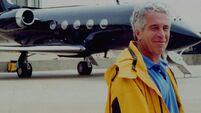Beagle 2 still hasn’t phoned home from Mars mission
The 250ft Lovell telescope at Jodrell Bank in Cheshire attempted to catch Beagle 2's faint signals the equivalent of picking up a mobile phone call from Mars but it was unsuccessful.
Then the super-sensitive 150ft dish radio telescope at Stanford University in California joined the hunt. 'The Dish', as Stanford's radio telescope is commonly known, is powerful enough to detect radio emissions from Beagle 2's central processor microchip.














